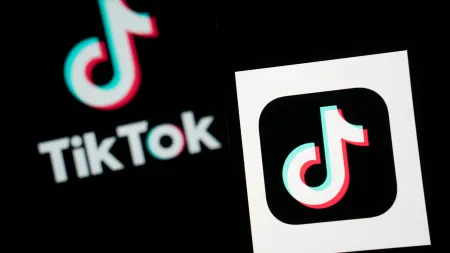TikTok has made a comeback after briefly going offline in the United States, thanks to a key intervention from former President Donald Trump. The popular social media app announced on Sunday that it was “in the process of restoring service” after a tumultuous period that saw the platform go dark on Saturday night, just before a critical deadline for the divestiture bill. This bill, which was set to take effect at midnight on January 19, would have forced the company to divest from its Chinese ownership.
The situation arose after the Trump administration pushed for the app to be banned due to national security concerns, fearing that the Chinese government could use TikTok to collect data on U.S. users. However, the Biden administration had indicated that any actions to enforce the divestiture law would fall to the incoming administration, which would officially take office on January 20.
On Sunday, Trump took to his Truth Social platform, urging companies to allow TikTok to remain operational in the United States. He stated that he was “asking companies not to let TikTok stay dark” and expressed his preference for the U.S. to hold a 50% stake in a potential joint venture with the company. This message appeared to clarify his stance on the issue, providing a pathway forward for TikTok to continue operating without facing the immediate threat of a forced sale.
TikTok responded swiftly to Trump’s post, thanking him for “providing the necessary clarity and assurance to our service providers that they will face no penalties for continuing to provide TikTok to over 170 million Americans and supporting more than 7 million small businesses.” The company’s statement further emphasized the importance of protecting free speech, describing the move as a “strong stand for the First Amendment and against arbitrary censorship.” TikTok also expressed its commitment to working with Trump to find a long-term solution that would enable the platform to remain available to U.S. users.
While TikTok worked to restore service, another ByteDance-owned product, the digital card game Marvel Snap, also went offline on Sunday. The game’s American development team, Second Dinner Studios, expressed surprise at the outage, explaining that it had not been part of any planned maintenance. They reassured users that they were actively working to bring the game back online as quickly as possible. As of the latest update, the game’s official website remained inaccessible.
This series of events highlights the ongoing tension between U.S. lawmakers and Chinese-owned tech companies operating on American soil. TikTok, in particular, has been the subject of scrutiny due to its connection to ByteDance, a company headquartered in Beijing. The concern over TikTok stems from fears that the Chinese government could access the vast amount of data the app collects from its millions of American users, potentially using it for surveillance or other purposes.
Despite these concerns, TikTok has consistently denied any wrongdoing or improper data sharing with the Chinese government. The platform has taken steps to assure U.S. regulators that it stores American user data in the U.S. and operates under a structure designed to separate its operations from China. However, these assurances have not been enough to fully quell the concerns of U.S. lawmakers, many of whom have called for stricter regulations on foreign-owned tech companies.
As the debate over TikTok’s future continues, the app remains a dominant force in the social media landscape. It boasts over 170 million users in the United States alone, and its success has had a profound impact on the way people consume and create content online. TikTok’s algorithm, which promotes viral videos based on user interests rather than a user’s social network, has revolutionized the way content is discovered and shared.
The platform has also played a crucial role in the rise of small businesses and creators. TikTok’s algorithm allows businesses, including many small and independent ones, to reach a vast audience without having to invest heavily in advertising. This has made TikTok a valuable marketing tool for entrepreneurs and a vital space for creativity and self-expression.
Looking ahead, TikTok’s future in the United States remains uncertain. While the company has gained some reprieve thanks to Trump’s intervention, the underlying political and security concerns are unlikely to disappear anytime soon. The Biden administration will likely continue to monitor TikTok’s operations closely, and discussions about the app’s ownership structure may continue to evolve as more information about data privacy and security risks comes to light.
For now, though, TikTok users across the U.S. can breathe a sigh of relief as the app begins to restore full service, thanks in part to Trump’s influence and the company’s ability to navigate the complex political landscape. Whether this resolution will be temporary or part of a longer-term solution remains to be seen, but for the time being, TikTok is back and operational, ready to continue serving its massive user base and supporting small businesses across the country.


